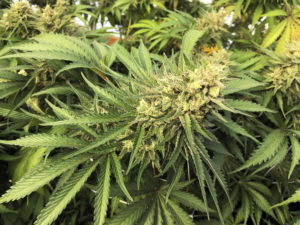Is Oregon producing too much cannabis?

PORTLAND — Oregon’s top federal prosecutor said Friday the state has a “formidable” problem with marijuana overproduction that winds up on the black market and that he wants to work with state and local leaders and the pot industry to do something about it.
U.S. Attorney Billy Williams convened the unprecedented summit of influential federal law enforcement representatives, state officials and marijuana industry scions after Attorney General Jeff Sessions withdrew an Obama administration memo that had guided states with legalized weed on how to avoid federal scrutiny.
The meeting included representatives from 13 other U.S. attorney’s offices, the FBI, the U.S. Postal Inspection Service, the U.S. Forest Service and U.S. Customs and Border Protection. U.S. attorneys from California, Washington, Colorado, Idaho, Alaska and Montana attended in person.
Gov. Kate Brown, a Democrat, told guests that Williams has assured members of her administration that “lawful Oregon businesses remain stakeholders in this conversation and not targets of law enforcement.”
The marijuana industry has been watching federal prosecutors in states with legalized weed like Oregon closely since Sessions rescinded the so-called Cole memo. U.S. attorneys in states where marijuana is legal under state law now face the delicate question of how to do their jobs and hew to the federal ban.
Williams sought to calm fears among pot growers, but said the market has a problem that must be addressed. Everyone needs a “bottom-line answer” on how much excess marijuana is being produced and how much of it winds up on the black market, he said.
Williams last month wrote a guest column in a newspaper in which he said the surplus attracts criminal networks and generates money laundering, drug violence and draws down water supplies in rural communities.
“Here’s what I know in terms of the landscape here in Oregon, and that is, we have an identifiable and formidable marijuana overproduction and diversion problem,” he said Friday.
Williams added: “And make no mistake about it, we’re going to do something about it.”
There is general agreement that marijuana from Oregon does wind up in other states where it isn’t legal. Still, it’s hard to say if pot smuggling has gotten worse in Oregon — where illicit pot farmers were thriving long before recreational legalization — or how much pot leaving the state filters out from the legal side.
